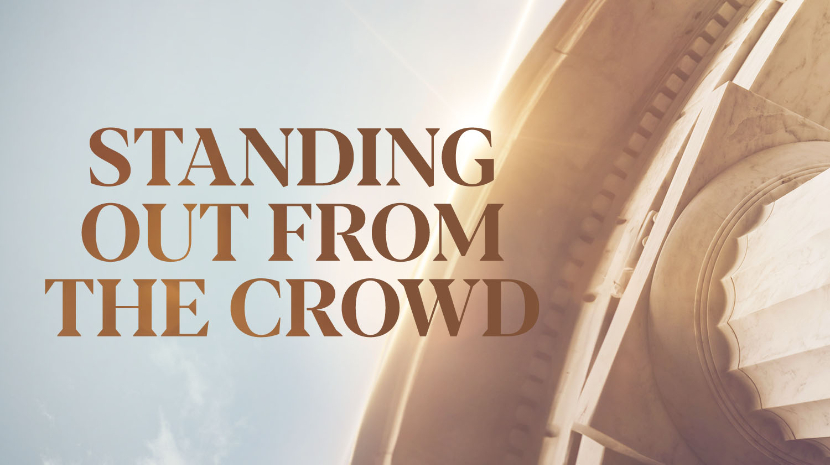From the Current Issue

Online Exclusive: From This Point Forward
Energy to Grow
His story was the stuff of legends and miracles—until it wasn’t. Lance Armstrong won his first major bike racing championship as a twenty-year-old in 1991 and kept on winning for five more years. In the United States, and then in Europe, he seemed unstoppable.
But in 1996, the unthinkable happened. Lance Armstrong was diagnosed with life-threatening cancer. He tackled the cancer the same way he tackled soaring mountain peaks on his bike—determined to win. By February 1997, Armstrong was declared cancer-free. And that’s when the miracles began. He got back on his bike and proceeded to win the toughest bike race in the world, the three-week Tour de France. Starting in 1999, he won the Tour seven years in a row.
Growth and strength are admirable goals, but they are best achieved through time-tested disciplines.
Though controls are much tighter now, “doping” was commonplace in professional cycling for decades. And, it appears, doping has been commonplace in many other sports as well. Many bodybuilders, Olympic athletes, and professional baseball and football players have “juiced”—injected themselves with steroids and human growth hormones—to gain a competitive advantage. Even high school and college athletes have been caught doping. Every major sport—especially those that depend on strength and speed—has instituted controls to prevent the use of banned substances.
Athletic organizations have established clear lines between legal and illegal methods for increasing strength and performance. A myriad of nutritional supplements is available over the counter for all aspiring athletes—from protein powders to energy drinks and more. And let’s not forget the best strength builder of all: the gym and vigorous exercise.
The lesson to take from the contemporary doping culture is this: Growth and strength are admirable goals, but they are best achieved through time-tested disciplines. There are no shortcuts to strength—and that is true in the spiritual realm as well.
And there’s another lesson—the focus of this article: There is a difference between building up the body and building up our faith.
Body Building
It is the responsibility of every Christian to grow in spiritual maturity!
For bodybuilders, muscles are an end in themselves; it’s the muscles that are on display. For other athletes, muscles are a means to an end. It’s what the muscles help these athletes accomplish in their sport that is most important.
So in building up the physical body, there are two important dimensions: muscles and what those muscles can accomplish. But in building up the spiritual body, there is a third dimension that is missing from the realm of the body—the dimension of faith.
Spirit Building
God intends for you and me to grow daily in spiritual maturity.
Nothing could be less true or more unbiblical. The New Testament is filled with references and allusions to the growth mandate, beginning with Jesus’ image of being “born again” (John 3:3-8). What does one do after being born? One grows!
Paul chastised the believers in Corinth because they weren’t growing spiritually, referring to them as still being “babes in Christ” who were not able to take “solid [spiritual] food” (1 Corinthians 3:1-3). And much of the letter to the Hebrews is a warning about failing to grow (Hebrews 5:11-14).
Paul wrote to the Ephesian church about “[growing] up in all things into Him who is the head—Christ.” The growth of individual Christians would result in the “growth of the body for the edifying of itself in love” (Ephesians 4:15-16). The Thessalonian church was doing just that—their faith was “[growing] exceedingly” and their love was abounding (2 Thessalonians 1:3).
And Peter—dear Peter, who once experienced a regression in his own faith—exhorted his readers to “desire the pure milk of the word, that you may grow thereby” (1 Peter 2:2) and to “grow in the grace and knowledge” of Christ (2 Peter 3:18).
Have I convinced you? God intends for you and me to grow daily in spiritual maturity. Now—on to faith building, our ultimate goal.
Faith Building
Remember: In bodybuilding there are exercises to build muscles, and then there are ways to apply those muscles in work or athletic competition. Allow me to draw a rough parallel in the spiritual realm.
- Building spiritual muscles: Bible study, prayer, worship, fellowship, giving, Bible memory, and others. These are exercises every Christian must engage in if we are to grow in spiritual maturity.
- Building spiritual maturity: Various areas of service and ministry where we use our spiritual muscles in service to Christ. These applications of spiritual strength will be different for each of us. New Christians might volunteer to be a teacher’s assistant in a children’s Sunday school class, while an older Christian might leave home to serve as a missionary in a foreign land. All are good, and all are different—but there is a danger: We can settle into a “safe zone of service”—a comfort zone that we never leave because we have failed to build spiritual faith.
- Building spiritual faith: This is when we take our eyes off our muscles and our abilities and trust God to do things through us that only He can do. In the words of leadership developer Dr. John Haggai, we need to attempt things so great that they are doomed to fail unless God is in them.
The Christian life is a life of faith, not of sight (2 Corinthians 5:7). We learn about God from His Word and through prayer and worship. But knowledge is not the goal—faith is the goal! The more we know of God and are filled with the power of the Spirit, the more we should be able to trust Him by faith when our sight reaches its limits.
Take the transformation in the apostle Peter as an example. Before Pentecost, Peter failed his Lord. But a new, Spirit-filled Peter stepped out in faith in Jerusalem in ways that probably surprised even him. For the first time in his life, Peter stood up and preached a powerful sermon at Pentecost (Acts 2), he told a crippled beggar to stand up and walk (Acts 3), he defied the Jewish Sanhedrin who commanded him to stop his preaching (Acts 4), he called out a couple in the church who were attempting to deceive and defraud (Acts 5), and many more “firsts” occurred as Peter’s faith grew.
When was the last time you or I did something by faith “for the first time in our life”? Have we given beyond our ability to someone in need? Have we forgiven someone we thought we never could? Have we witnessed about Christ to someone who is antagonistic to the Gospel? Have we said “Yes” to a service opportunity in spite of our fears of failure?
The faith that grows, dear friend, is the faith that is exercised! Build your muscles through spiritual disciplines. Apply those muscles in areas of ministry. But most of all, build your faith in God by trusting Him to do something that only He is big enough to do.
This Month's Magazine Resource

The Mediterranean Sea Rules
In The Mediterranean Sea Rules, author Robert J. Morgan traces every detail of the voyage and shipwreck of the apostle Paul, drawing out ten lessons that will equip you to come out of stormy weather stronger than ever. Atmospheric disturbances come to us all. But the Lord pilots His people over rough waters, imparting the nautical skills necessary for spiritual buoyancy. He will do that for you!
Subscribe Now
Each month, read articles and devotionals from Dr. David Jeremiah that will encourage, challenge, and strengthen your walk with the Lord.











 Turning Point for God is a tax-exempt, not-for-profit, religious corporation as defined under Section 501(c)(3) of the Internal Revenue Code. Your donation gift(s) are very much appreciated and may qualify as a charitable deduction for federal income tax purposes.
Turning Point for God is a tax-exempt, not-for-profit, religious corporation as defined under Section 501(c)(3) of the Internal Revenue Code. Your donation gift(s) are very much appreciated and may qualify as a charitable deduction for federal income tax purposes.




